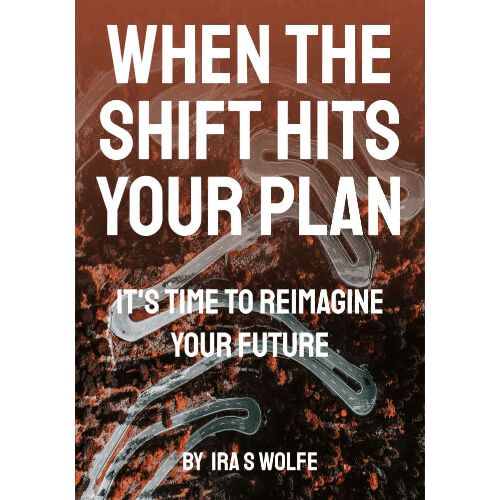Key Takeaways from the 2020 Candidate Experience Research Report
An Interview with Kevin Grossman
WHAT TO EXPECT
If you only follow the headlines, you might think nobody was hiring last year. But The Talent Board’s 2020 candidate experience survey shows the truth. Companies were hiring and candidates were being hired, and in some ways in a new way than ever before. By partnering with companies across the country, The Talent Board is able to get a glimpse into how companies curate candidate experiences–and what needs to improve.
SEGMENT #1 – Kevin Grossman
Last year many companies were in collapse, but some were growing rapidly–and with rapid growth comes rapid hiring. How was all of this hiring done? Kevin Grossman is on today to share the results of The Talent Board’s 2020 candidate experience survey.
SEGMENT #2 – AHEAD OF THE CURVE
This week’s segment includes our tech segment with Michael Spremulli. He discusses Clubhouse, the social media platform that is capturing the attention of millions of people.
LISTEN, WATCH, SUBSCRIBE
Quotes
[19:05] “It’s never going to be about happy candidates because they’re only going to be happy if they’re hired. If they don’t get hired, it’s about the fairness of the process, that’s what we see every year.”
[28:20] “It’s little things that go a long way in candidate experience.”
Podcast Notes
Surprising Trend [8:48]
The survey got responses from 135,000 candidates at almost 200 companies. Though this is down slightly from previous years because of COVID, there are still strong insights to be gained. In fact, there were some trends and insights in this data that had not been seen before.
Talent Board partners with companies to administer this survey to candidates across job types. It is an anonymous survey to measure candidate experience. For example, one question asks candidates to rate the strength of their relationship to the company after their experience compared to before it. An increase in relationship strength became 23% more common last year, and a decrease became 43% less common.
This is just one surprising finding. In fact, the “resentment rate” of people who like companies less after their candidate experience has been steadily rising, so this is a reversal of a long trend. This is in part due to a new level of transparency that companies were forced into–there was no hiding from employment issues.
Balancing Automation and Human Interaction [16:20]
[19:05] “It’s never going to be about happy candidates because they’re only going to be happy if they’re hired. If they don’t get hired, it’s about the fairness of the process, that’s what we see every year.”
Candidates don’t care about the fancy features in their experience–they care about getting the job. Unfortunately, for the majority of candidates, their journey ends after applying. To put a number on it, 93% of surveyed candidates did not get the job.
However, candidates do care about the experience they had with technology as opposed to the technology itself. Recruitment technology is often central to fundamental parts of the candidate experience, including communication, engagement, and expectations.
Providing a good candidate experience is not just good for candidates. Employers benefit by creating a pool of loyal talent who will be willing to reapply when opportunities open up in the future.
Awareness Alignment [20:15]
Last year, employees rated themselves at a 20 on a scale of -100 to 100 on how they handled not selected candidates. This year, that number was 7.
Employers typically rate themselves higher than candidates rate them. However, that has not been the case this year in the case of rejection. This could be a positive development, as it might indicate employers are seeing their shortcomings and accepting them so change can happen.
Awareness alignment across the board set 2020 apart from other years. This could indicate a variety of new realities, but it is certainly a sign of change. The only gap that increased was in the onboarding stage. Employers believe there is much work to do on this stage, even if employees are happy.
Final Takeaways [27:05]
[28:20] “It’s little things that go a long way in candidate experience.”
Feedback is really important in the candidate experience. It is somewhat common for companies to solicit feedback at various stages of the hiring process. However, candidates who receive feedback have a 15% better experience than other candidates. It is likely that only candidates who are near the end of the process are receiving feedback, but it still seems to be a good contributor to a positive experience.
Assessments are being used much more often as a job fit screening tool. Giving candidates feedback on these assessments is an easy way to improve their experience. This leads to a 20% increase in positive experiences.
Importantly, it matters how feedback is framed. It is much more than an explanation of why a decision was made. The best feedback also points out strengths and gives practical steps for growth.
Ahead of the Curve: Normal 2.0 [40:30]
Clubhouse is a new social media platform based on audio. It’s a lot like having people in the same room to chat–a luxury that we didn’t appreciate until last year. It has been building for a year or so but is really bursting into the mainstream now.
One thing that sets Clubhouse apart is that it is currently members-only, and anyone invited by a user is ascribed to that user. This method brings a new level of accountability and keeps the quality of the community high.
Also, it is audio-only. There is no messaging or video, and recordings are not (currently) saved. It’s similar to attending breakout rooms at a conference. You can walk down the “hall” and pop into any public room as wanted.
Many topics include Internet standbys like marketing and eCommerce, but there are also a range of high-level conversations in topics like education, climate change, and technology. Clubhouse gives users the option to select areas of interest in order to better curate a personal hallway.
WHERE TO WATCH OR LISTEN
The Geeks, Geezers & Googlization TV Show is live every Wednesday at 1 PM ET on Facebook, YouTube, Talk 4 TV, and broadcast on W4CY Radio, part of Talk 4 Radio on the Talk 4 Media Network. The podcast is also available on Talk 4 Podcasting.
Following the broadcast, the replay will be available at the same links for YouTube and Facebook, our podcast website Geeks Geezers Googlization, and on most podcasts including Apple Podcast, iHeart, Spotify, Amazon, Stitcher and more.







